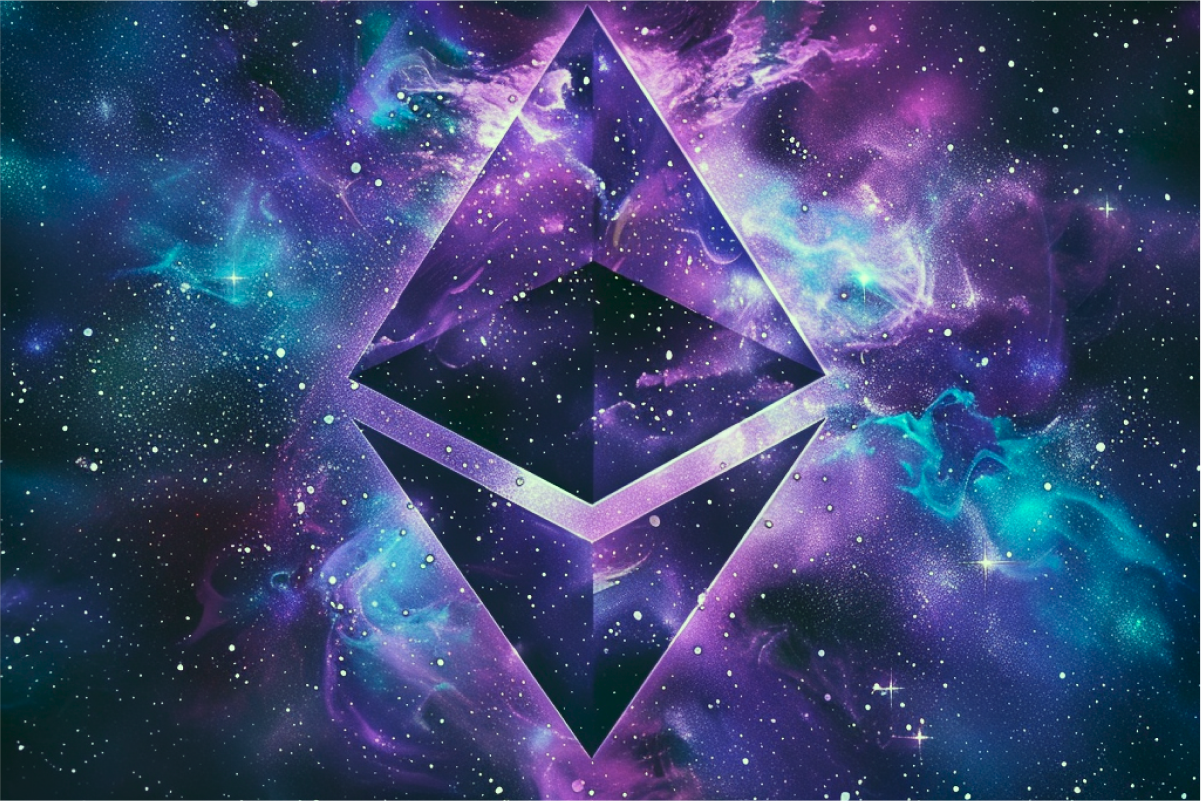Blockchain technology has taken the world by storm, with new platforms emerging and offering innovative solutions. Two such platforms, Akash and Ethereum, are making waves in the industry. In this article, we will delve into the intricacies of these platforms, comparing their key features, technical aspects, economic models, and developer communities to answer the question: is Akash the next Ethereum?
Understanding the Basics of Blockchain Platforms
To truly appreciate the potential of Ethereum and Akash, it is crucial to understand the basic concept of blockchain platforms. These platforms serve as a foundation for decentralized applications (dApps) and smart contracts. Ethereum, launched in 2015, is often hailed as the pioneer of blockchain platforms. It introduced the concept of smart contracts, which are self-executing contracts with predefined conditions.
Akash, on the other hand, is a relatively newer platform that aims to solve the problem of cloud computing centralization. It leverages the power of blockchain technology to create a decentralized cloud marketplace, providing users with a more affordable and flexible cloud computing solution.
Blockchain platforms like Ethereum and Akash operate on a decentralized network of nodes, ensuring transparency and security through consensus mechanisms such as Proof of Work (PoW) or Proof of Stake (PoS). These consensus algorithms play a vital role in validating transactions and maintaining the integrity of the platform.
Furthermore, Ethereum’s blockchain platform allows developers to build and deploy smart contracts, enabling a wide range of decentralized applications across various industries, from finance to supply chain management. The platform’s native cryptocurrency, Ether, fuels transactions and smart contract executions within the Ethereum ecosystem.
Key Features of Ethereum and Akash
Ethereum has several unique selling points that have made it a popular choice among developers and businesses. Its Turing-complete programming language allows for the development of complex smart contracts and dApps. Furthermore, Ethereum’s large user base and extensive ecosystem make it an attractive platform for innovation and collaboration.
Akash, on the other hand, stands out with its decentralized cloud marketplace. By leveraging blockchain technology, Akash enables users to access the computing power they need at competitive pricing. This decentralized approach ensures better availability, reliability, and security compared to traditional cloud providers.
One of the key features of Ethereum is its scalability solutions. With the upcoming Ethereum 2.0 upgrade, the platform is set to transition from a proof-of-work to a proof-of-stake consensus mechanism, significantly increasing its transaction throughput and reducing energy consumption. This upgrade is expected to address the scalability issues that Ethereum has faced in the past, making it more efficient and sustainable for long-term use.
On the other hand, Akash’s unique selling point lies in its utilization of unused cloud capacity. By tapping into underutilized data centers and servers around the world, Akash is able to offer users a cost-effective alternative to traditional cloud services. This not only benefits users by providing them with affordable computing resources but also contributes to reducing overall energy consumption in the cloud computing industry, making it a more environmentally friendly option.
Technical Comparison Between Ethereum and Akash
When comparing Ethereum and Akash from a technical standpoint, two crucial aspects come into play: consensus mechanisms and scalability.
Consensus Mechanisms: Ethereum vs Akash
Ethereum currently relies on a proof-of-work (PoW) consensus mechanism, which requires miners to solve complex mathematical puzzles to validate transactions. While this has proven to be secure, it faces challenges in terms of scalability and energy consumption.
Akash, on the other hand, utilizes a novel consensus mechanism called Proof-of-Stake (PoS). This mechanism is more environmentally friendly and offers higher scalability potential. By staking their native tokens, Akash users contribute to the security of the network and earn rewards in return, making it a more sustainable and efficient option for consensus.
Proof-of-Stake (PoS) is an exciting development in the blockchain space. It not only addresses the scalability and energy consumption issues faced by Proof-of-Work (PoW) systems like Ethereum but also introduces a more inclusive approach to securing the network. With PoS, users who hold a significant stake in the network have a greater say in the consensus process, promoting decentralization and reducing the influence of a select few.
Scalability: Ethereum and Akash Face-off
Scalability has been a significant concern for Ethereum, especially during periods of high network traffic. The Ethereum community is actively working on solutions like layer-2 scaling solutions and Ethereum 2.0, which aims to implement a more scalable and energy-efficient version of the platform.
Akash, on the other hand, already boasts impressive scalability due to its decentralized cloud marketplace model. By utilizing idle computing resources from providers worldwide, Akash ensures that users can access the required computing power without facing the bottlenecks often associated with centralized cloud providers.
The decentralized cloud marketplace model employed by Akash is a game-changer in the world of cloud computing. Traditional cloud providers often struggle to handle sudden spikes in demand, leading to increased costs and decreased performance for users. Akash’s innovative approach allows users to tap into a vast network of idle computing resources, ensuring that scalability is no longer a concern. This not only benefits individual users but also opens up new possibilities for businesses and developers who require reliable and scalable computing power.
The Economic Models of Ethereum and Akash
The economic models of blockchain platforms play a crucial role in their sustainability and adoption. Let’s take a closer look at the economic models of Ethereum and Akash.
Ethereum’s Economic Model Explained
Ethereum’s economic model revolves around its native cryptocurrency, Ether (ETH). Miners are rewarded with Ether for validating transactions and securing the network. Additionally, developers can deploy their dApps on Ethereum and earn revenue through transaction fees or by offering their digital products and services.
Understanding Akash’s Economic Model
Akash’s economic model is intricately linked to its decentralized cloud marketplace. Users can pay for cloud computing resources using Akash’s native token, AKT. By staking AKT tokens, users can also participate in network governance and earn rewards for their contribution to the platform’s security and stability.
One of the key features of Ethereum’s economic model is its concept of gas, which is used to calculate the fees for transactions and smart contract executions on the network. Gas ensures that the Ethereum network remains efficient and secure by preventing spam and denial-of-service attacks. Users must pay gas fees to incentivize miners to include their transactions in the blockchain.
On the other hand, Akash’s economic model emphasizes the importance of decentralization in cloud computing. By leveraging a peer-to-peer network of providers and consumers, Akash aims to reduce costs and improve efficiency in the cloud computing industry. Users can access a wide range of cloud services on Akash’s platform, all powered by its decentralized and secure network.
Community and Developer Support for Both Platforms
The success of a blockchain platform heavily relies on its community and developer support. Let’s explore the communities behind Ethereum and Akash.
Ethereum’s Developer Community
Ethereum boasts one of the largest and most vibrant developer communities in the blockchain space. The Ethereum community actively collaborates on research, development, and the creation of valuable resources for developers and entrepreneurs. With a rich ecosystem of tools, libraries, and frameworks, Ethereum offers developers tremendous flexibility and support.
Within the Ethereum community, there are numerous online forums and discussion platforms where developers can seek help, share ideas, and collaborate on projects. These platforms foster a sense of camaraderie and knowledge-sharing among Ethereum enthusiasts. Additionally, Ethereum hosts regular hackathons and developer conferences, providing opportunities for developers to showcase their skills and learn from industry experts.
Moreover, Ethereum’s developer community extends beyond online interactions. Local Ethereum meetups are held in cities worldwide, allowing developers to connect in person, network, and exchange insights. These meetups often feature presentations and workshops by experienced developers, further enriching the community’s knowledge base.
Akash’s Growing Support Base
While Akash’s journey is relatively new, it has started gaining traction among developers and cloud computing enthusiasts. The growing support base is evident through the increasing number of Akash integrations and partnerships. Developers exploring Akash can tap into a community willing to support and collaborate in this emerging field of decentralized cloud computing.
Akash’s community is known for its inclusivity and openness. Developers are encouraged to contribute to the platform’s development, whether it’s by submitting code, proposing new features, or providing feedback. This collaborative approach ensures that the platform evolves according to the needs and preferences of its user base.
Similar to Ethereum, Akash also organizes community events and meetups. These gatherings serve as a platform for developers to learn about Akash’s latest updates, share their experiences, and brainstorm ideas for future improvements. By fostering a strong sense of community, Akash aims to create an environment where developers feel supported and empowered.
Conclusion
With Ethereum’s established position and extensive community support versus Akash’s innovative approach, it is hard to determine if Akash will surpass Ethereum. However, one thing is certain – both platforms contribute to the ongoing revolution of blockchain technology.
As the blockchain industry continues to evolve, it is crucial for platforms like Ethereum and Akash to prioritize community involvement and developer support. The success of these platforms relies not only on their technological advancements but also on the active participation and collaboration of their communities.
In conclusion, Ethereum and Akash excel in their own unique ways. Ethereum’s smart contract capabilities and extensive ecosystem make it a powerhouse for dApps and decentralized finance (DeFi). On the other hand, Akash’s decentralized cloud marketplace offers a competitive alternative to traditional cloud providers, ensuring better availability, reliability, and affordability.
Ultimately, the future of blockchain platforms will rely on continued innovation, scalability solutions, and community involvement. As the industry evolves, it will be exciting to witness how Ethereum and Akash shape the future of decentralized technologies.



